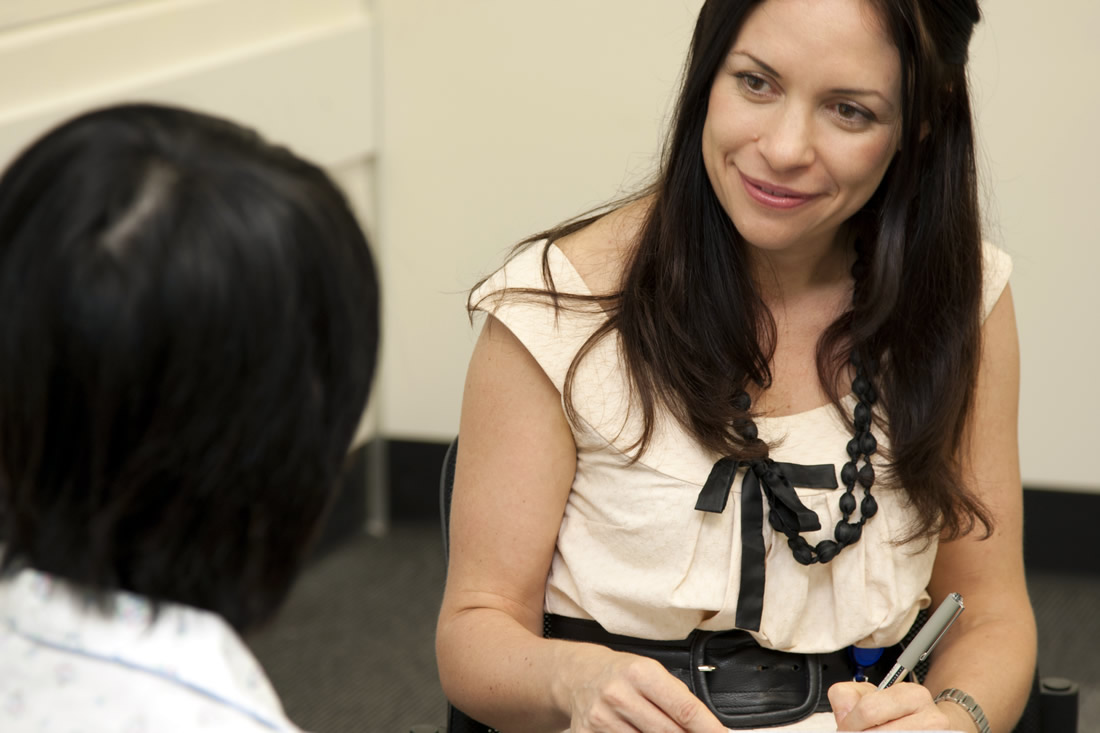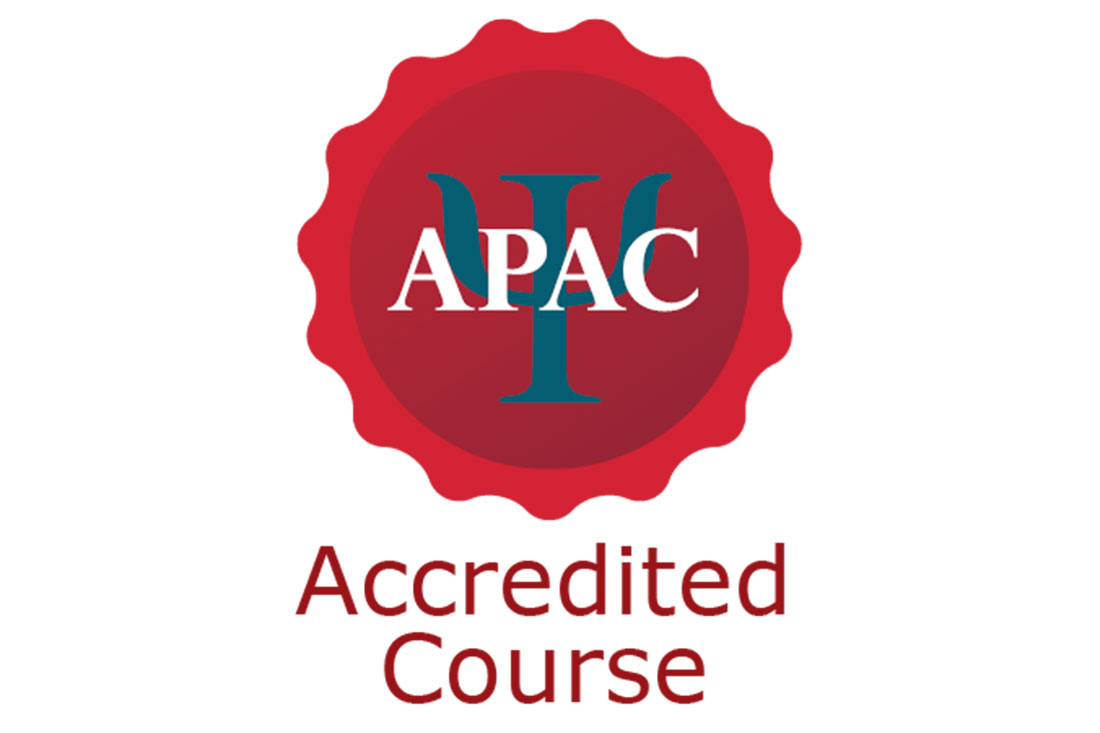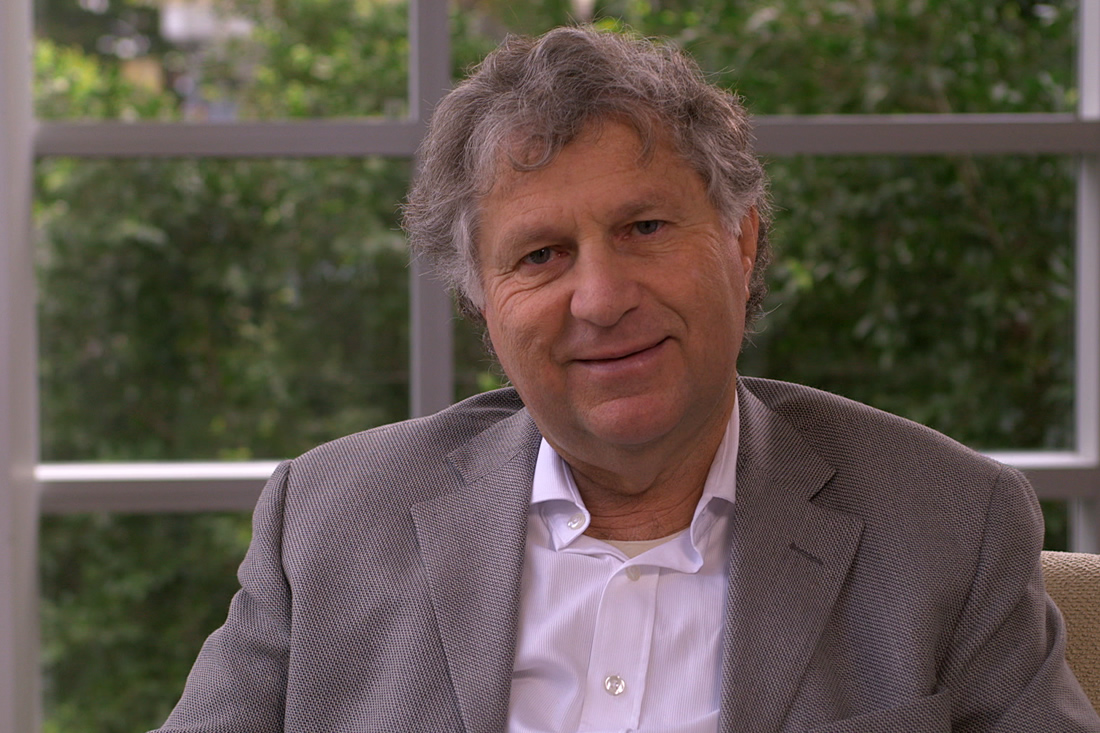Real graduate
'QUT gave me the opportunity to study a range of psychotherapies, which is so important when tailoring treatment to specific patient needs. QUT was the only university where I found I could have an integrated approach in my practice.'
Accreditation
Full accreditation with the Australian Psychology Accreditation Council means that this course is accredited by a national and international accreditation authority, giving you a highly recognised qualification. This course is part of a sequence that can lead to eligibility for registration as a psychologist. APAC is the only Australian entity with the authority to accredit courses that will be recognised by the Psychology Board of Australia.
Postgraduate programs in psychology and counselling
We have a national reputation for the quality of our postgraduate training programs. We offer programs in clinical psychology, and also in educational and developmental psychology.
Real graduate
'QUT gave me the opportunity to study a range of psychotherapies, which is so important when tailoring treatment to specific patient needs. QUT was the only university where I found I could have an integrated approach in my practice.'
Accreditation
Full accreditation with the Australian Psychology Accreditation Council means that this course is accredited by a national and international accreditation authority, giving you a highly recognised qualification. This course is part of a sequence that can lead to eligibility for registration as a psychologist. APAC is the only Australian entity with the authority to accredit courses that will be recognised by the Psychology Board of Australia.





Highlights
- Integrative psychotherapeutic approach that provides students with a unique flexibility to conceptualise and treat clinical presentations across the lifespan.
- Graduate eligible to apply for registration as a psychologist in Australia.
- Learn to conceptualise and treat clinical presentations including relational psychodynamic, cognitive-behavioural, and systemic narrative therapeutic approaches.
- Gain experience with an internship at our specialised Psychology and Counselling clinic, and with clinical training in external hospitals, community agencies and mental health settings.
- Opportunity to complete a study program that combines Master of Clinical Psychology in a partially part-time mode with concurrent, but staggered, completion of the Doctor of Philosophy (PhD).
Highlights
- Integrative psychotherapeutic approach that provides students with a unique flexibility to conceptualise and treat clinical presentations across the lifespan.
- Graduate eligible to apply for registration as a psychologist in Australia.
- Learn to conceptualise and treat clinical presentations including relational psychodynamic, cognitive-behavioural, and systemic narrative therapeutic approaches.
- Gain experience with an internship at our specialised Psychology and Counselling clinic, and with clinical training in external hospitals, community agencies and mental health settings.
- Opportunity to complete a study program that combines Master of Clinical Psychology in a partially part-time mode with concurrent, but staggered, completion of the Doctor of Philosophy (PhD).
Explore this course
The Master of Clinical Psychology builds upon the latest psychotherapy process and outcome research findings and uses an integrative approach to training students in assessment and treatment of mental health problems and disorders. This approach assists students to develop a flexible and client-focused approach to practice, consistent with contemporary standards for evidence-based practice in clinical psychology.
Students learn to conceptualise and treat clinical presentations using relational psychodynamic, cognitive-behavioural, systemic, and narrative therapeutic approaches. Graduates of this course have the knowledge and competence to provide assessment and treatment across the lifespan.
Combined study program option
Students in this course may be able to complete a study program that combines QUT's Master of Clinical Psychology in a partially part-time mode with concurrent (but staggered) completion of the Doctor of Philosophy (PhD). This allows students completing the Masters degree to develop their PhD proposal and work towards milestones required for PhD project. The explicit linking of interests across the two programs provides a powerful synergy.
Work Integrated Learning
During this course, you will be required to complete a minimum of 1500 hours of work placements.
Careers and outcomes
This course provides the academic foundation for a career in clinical psychology. Clinical psychologists are employed in a wide range of health and counselling services and are also able to work as independent (private) practitioners. Clinical psychology may also provide a springboard for other careers, subject to additional or complementary training.
Please note that while successful course completion allows graduates to apply for General Registration as a Psychologist, endorsement as a Clinical Psychologist requires an additional period of approved supervised practice. Please see the Psychology Board of Australia for further information.
On endorsement, graduates may apply for specialist positions as clinical psychologists and enjoy increased scope of practice and more flexible arrangements under Medicare, when working in private practice settings.
Professional recognition
Graduates are eligible to apply for registration as a Psychologist in Australia. The course meets the accreditation requirements of the Australian Psychology Accreditation Council (APAC), the Australian Psychological Society College of Clinical Psychologists and the Psychology Board of Australia.
Possible careers
- Change manager
- Clinical psychologist
- Counsellor
- Critical incident or disaster response manager
- Forensic psychologist
- Health psychologist
- Health researcher
- Program evaluator
- Psychologist
- Public health officer
- Research fellow
The coursework component of this program provides training on how to assess and diagnose clinical presentations. It provides unique training on how to conceptualise and treat a broad range of child and adult clinical presentations from relational psychodynamic, cognitive-behavioural, and systemic narrative therapeutic approaches.
Clinical placements begin in the first semester with an internship spanning the first year. Students complete the internship under intense supervision at the specialised Psychology and Counselling Clinic at QUT’s Kelvin Grove campus. During the internship, students gain experience in assessing and treating a range of clinical cases across the lifespan.
Once students are deemed competent through the internship, they continue their clinical training with external placements in hospitals, community agencies and a variety of child and adult mental health settings.
To undertake the supervised practice, students need to provide evidence of provisional registration as a psychologist with the Psychology Board of Australia and hold a current blue card as required by the Commission for Children and Young People and Guardian Act (2000).
The coursework component of this program provides training on how to assess and diagnose clinical presentations. It provides unique training on how to conceptualise and treat a broad range of child and adult clinical presentations from relational psychodynamic, cognitive-behavioural, and systemic narrative therapeutic approaches.
Clinical placements begin in the first semester with an internship spanning the first year. Students complete the internship under intense supervision at the specialised Psychology and Counselling Clinic at QUT’s Kelvin Grove campus. During the internship, students gain experience in assessing and treating a range of clinical cases across the lifespan.
Once students are deemed competent through the internship, they continue their clinical training with external placements in hospitals, community agencies and a variety of child and adult mental health settings.
To undertake the supervised practice, students need to provide evidence of provisional registration as a psychologist with the Psychology Board of Australia and hold a current blue card as required by the Commission for Children and Young People and Guardian Act (2000).
- Course code
- PY18
- CRICOS code
- 052769J
-
- Kelvin Grove
-
- Kelvin Grove
- 2 years full-time
- 4 years part-time
- 2 years full-time
- February
- Entry into this course is competitive and applications have an early closing date of 30 September of the previous year.
- February
- Entry into this course is competitive and applications have an early closing date of 30 September of the previous year.
Entry requirements
You must have:
- A recognised psychology honours or 4-year bachelor degree (or higher) in psychology completed within the last 10 years (2015 or later)*; and
- A minimum fourth year psychology units grade point average (GPA) of 6.00 (on QUT's 7 point scale) in your psychology bachelor degree; and
Your degree must be accredited by the Australian Psychology Accreditation Council (APAC) as a 4-year training (or equivalent) program. For example, QUT's Bachelor of Behavioural Science (Honours Psychology) degree.
If you have an overseas qualifications you must provide certification with your application from the Australian Psychological Society (APS) stating your degree is equivalent to an APAC-approved, 4-year training in psychology. The Australian Psychological Society advises the average processing time is eight weeks, therefore you will need to seek certification by no later than July.
Additional entry requirements
You must:
- Ask two referees to provide us with confidential reports via the Psychology Reference System. You will also need to ensure you have shared these reports with QUT in the Psychology Reference System. Please note: This system is the same across many Australian universities. User charges may apply.
- Provide a completed questionnaire (PDF file, 186 KB).
- Provide your current CV.
- Attend an interview, if shortlisted.
Overseas qualifications
We will consider equivalent overseas qualifications for admissions purposes. If you have tertiary qualifications from countries where English is not the standard language of instruction, you must provide evidence of English language proficiency.
English language proficiency
We require students to demonstrate they can speak, write, read and comprehend academic English to a specified standard.
Our English proficiency requirements for this course are:
- IELTS (Academic): 7.0 or better overall with no subscore below 7.0
- PTE (Academic): 65 or better overall with no subscore below 65
- TOEFL (iBT): 98 or better overall with a writing subscore of 27 or better, listening and reading subscore of 24 or better, and speaking subscore of 23 or better
- Cambridge English Score: 185 or better overall with no subscore below 185
The test must have been completed within 2 years prior to the proposed course start month.
Application dates
- 1 July: applications open
- 30 September: final date to apply and provide all required supporting documentation. Applications or supporting documentation received after this date will not be considered.
Selection process
Applicants are shortlisted for interviews in priority order based on their GPA, referee reports and questionnaire. Shortlisted applicants for the first round will be contacted in mid-October to attend an in-person interview at the Kelvin Grove campus in late October/early November to assess their interpersonal skills in a clinical context. If required, a second round of in-person interviews will be conducted in late November/early December.
Admission is based on GPA, interview, questionnaire, and referee reports. Mid-November is when first round of offers will be issued to selected interviewed applicants along with notifications to unsuccessful applicants. If you were interviewed or did not receive an outcome in mid-November, your application is being held for consideration in late November/early December should places become available.
Applicants expecting to complete their studies by December
You must provide your academic record for all studies attempted up until semester 1 this year by 30 September. If your application is successful you will receive a conditional offer that will stipulate when your final results and course completion must be provided to confirm your place.
If you have summer/semester 3 (or equivalent) studies you will need to apply for entry next July. for the intake year after you complete your studies.
*Qualifications completed more than 10 years ago
If you completed your degree with the required GPA more than 10 years ago, you must either:
- Successfully complete refresher training (see below); or
- Provide evidence of current registration as a psychologist with the Psychology Board of Australia.
Refresher training
You are recommended undertake the following units at QUT:
- Assessment and diagnosis: PYB309 Individual differences and assessment plus PYB306 Psychopathology
- Psychological Interventions: PYH402 Counselling Psychology
- Psychopathology: PYB306 Psychopathology
- Ethics: PYH407 Research and professional development seminar
This training can be completed as single units of study. To fulfill Psychology Board requirements, refresher training needs to have been completed within the last ten 10 years (2015 or later).
Minimum academic requirements
Entry requirements
You must have:
- A recognised completed psychology honours or 4-year bachelor degree (or higher) in psychology completed within the last 10 years (2015 or later); and
- A minimum fourth year psychology units grade point average (GPA) of 6.00 (on QUT's 7 point scale) in your psychology bachelor degree; and
Your degree must be accredited by the Australian Psychology Accreditation Council (APAC) as a 4-year training (or equivalent) program. For example, QUT's Bachelor of Behavioural Science (Honours Psychology) degree.
If you have an overseas qualifications you must provide certification with your application from the Australian Psychological Society (APS) stating your degree is equivalent to an APAC-approved, 4-year training in psychology. The Australian Psychological Society advises the average processing time is eight weeks, therefore you will need to seek certification by no later than July.
Additional entry requirements
You must:
- Ask two referees to provide us with confidential reports via the Psychology Reference System by no. You will also need to ensure you have shared these reports with QUT in the Psychology Reference System. Please note: This system is the same across many Australian universities. User charges may apply.
- Provide a completed questionnaire (PDF file, 186 KB).
- Provide your current CV with your application.
- Attend an interview, if shortlisted. If you are not currently in Australia you will be invited to participate via Zoom.
Application dates
- 1 July: applications open
- 30 September: final date to apply and provide all required supporting documentation, including meeting the English Language course entry requirements. Applications, supporting documentation, referee reports, and/or English Language test results received after this date will not be considered.
Selection process
Applicants are shortlisted for interviews in priority order based on their GPA, referee reports and questionnaire. Shortlisted applicants for the first round will be contacted in mid-October to attend an in-person interview at the Kelvin Grove campus in late October/early November to assess their interpersonal skills in a clinical context. If required, a second round of in-person interviews will be conducted in late November/early December.
Admission is based on GPA, interview, questionnaire, and referee reports. Mid-November is when first round of offers will be issued to selected interviewed applicants along with notifications to unsuccessful applicants. If you were interviewed or did not receive an outcome in mid-November, your application is being held for consideration in late November/early December should places become available.
Applicants expecting to complete their studies by December
You must provide your academic record for all studies attempted up until semester 1 this year by 30 September. If your application is successful you will receive a conditional offer that will stipulate when your final results and course completion must be provided to confirm your place.
If you have summer/semester 3 (or equivalent) studies you will need to apply for entry next July. for the intake year after you complete your studies.
Minimum English language requirements
We accept English language proficiency scores from the following tests. Tests must be taken no more than 2 years prior to the QUT course commencement.
| English Test | Overall | Listening | Reading | Writing | Speaking |
|---|---|---|---|---|---|
|
Cambridge English Score
You must share your results with QUT through the Candidate Results Online website. |
185 | 185 | 185 | 185 | 185 |
| IELTS Academic | 7 | 7 | 7 | 7 | 7 |
| TOEFL iBT | 98 | 24 | 24 | 27 | 23 |
| Pearson PTE (Academic) | 65 | 65 | 65 | 65 | 65 |
Blue card
This course requires you to have a blue card so you can participate in work placements and experience.
Your actual fees may vary depending on which units you choose. We review fees annually, and they may be subject to increases.
2025 fees
2025: CSP fees available from September
2025 fees
2025: Available from July
2024 fees
2024: CSP $4,500 per year full-time (96 credit points)
2024 fees
2024: $33,300 per year full-time (72 credit points)
Student services and amenities fees
You may need to pay student services and amenities (SA) fees as part of your course costs.
HECS-HELP: loans to help you pay for your course fees
You may not have to pay anything upfront if you're eligible for a HECS-HELP loan.
You can apply for scholarships to help you with study and living costs.
Keep up to date
QUT courses for you
Like to save your courses?
Please enter your first name and email so we can save your courses for you